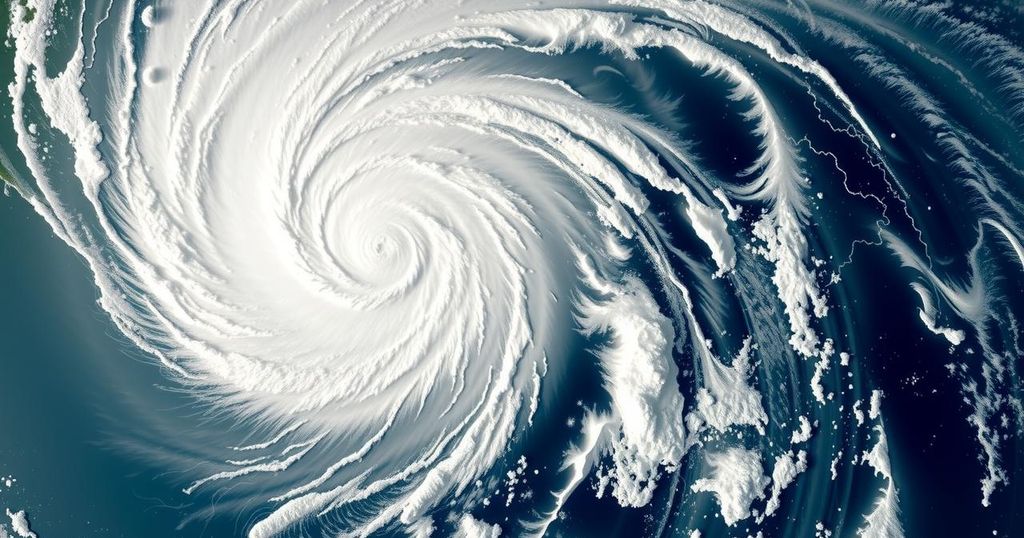Cyclone Chido Approaches Comoros, Madagascar, and Mozambique with Severe Threats
Cyclone Chido is approaching Comoros, Madagascar, Mayotte, and Mozambique, bringing strong winds and heavy rainfall. Authorities have closed schools, issued red alerts, and initiated evacuations in anticipation of severe impacts. The cyclone may hit with winds up to 200 kph, affecting over 2 million people. Emergency supplies and resources are being mobilized, and the threat of flooding and disease persists as the region braces for its impact.
A potent tropical cyclone, identified as Chido, is advancing toward the Comoros archipelago, Madagascar, the French territory of Mayotte, and the mainland region of Mozambique. This natural disaster is anticipated to deliver severe winds and substantial rainfall, thereby presenting significant risks to these areas. In response, authorities have enacted precautionary measures, including the closure of educational institutions in Comoros, in anticipation of the cyclone’s impact beginning early Saturday.
Additionally, the French territory of Mayotte has been placed on high alert, with the national meteorological agency issuing a red warning for the area. Mozambique, particularly the northern provinces of Cabo Delgado and Nampula, has also declared a red alert, affecting over two million residents. The Mozambique National Meteorological Institute is forecasting wind speeds that may reach an alarming 200 kilometers per hour (124 mph) upon landfall of Cyclone Chido.
Madagascar is preparing for the cyclone’s arrival, disseminating alerts to residents and initiating evacuations in the northern region of Diana, where the storm’s effects are predicted to be most severe. Since the onset of preparations, local authorities have been distributing food and emergency supplies to those in vulnerable positions. Furthermore, the French government is coordinating resources to support Mayotte, deploying emergency personnel and equipment to assist with potential rescue operations.
Climate change experts have cautioned that cyclones in this region are intensifying, with Cyclone Chido posing risks such as flooding, landslides, and the spread of waterborne diseases including cholera and malaria. As the region transitions into cyclone season, residents are recommended to stay informed and implement safety measures to protect themselves from this impending natural disaster.
Cyclone Chido represents a significant meteorological threat as it approaches several vulnerable regions in the Indian Ocean. The intensity of such storms is reportedly increasing, a phenomenon attributed to shifting climate patterns. Understanding the background of these storms and their projected paths is crucial for preparing residents and minimizing the potential human and environmental toll of such events.
In conclusion, Cyclone Chido poses a formidable threat to the islands of Comoros, Madagascar, and the African mainland, particularly Mozambique. The cyclone’s anticipated arrival has compelled local authorities to issue alerts and enact emergency measures to safeguard the affected populations. With climatic conditions amplifying the severity of such storms, it is imperative for residents to remain vigilant and proactive in their safety preparations.
Original Source: www.inkl.com




Post Comment